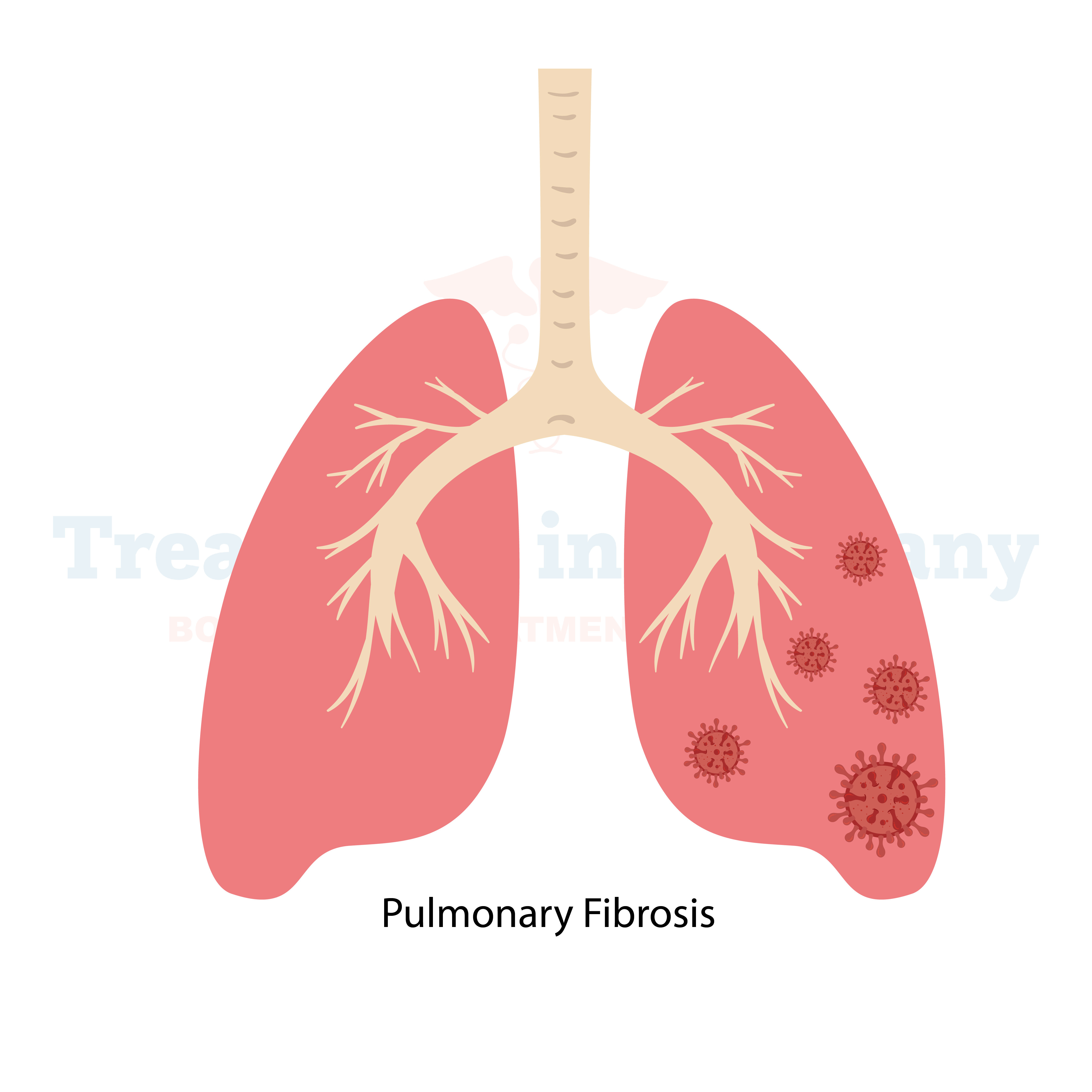What is Pulmonary Fibrosis:
Pulmonary Fibrosis is a progressive lung disease characterized by the thickening and scarring of lung tissue. This scarring makes it difficult for oxygen to pass through the walls of the air sacs into the bloodstream, leading to symptoms such as shortness of breath, persistent cough, fatigue, and ultimately, respiratory failure.
While the exact cause of Pulmonary Fibrosis is often unknown, it can be linked to factors such as exposure to environmental toxins, certain medications, autoimmune diseases, and genetic predispositions.
Side effects of Pulmonary Fibrosis:
Living with Pulmonary Fibrosis can significantly impact one's quality of life. In addition to the primary symptoms of the disease, patients may experience complications such as pulmonary hypertension, respiratory infections, and even heart problems.
The progressive nature of Pulmonary Fibrosis means that symptoms worsen over time, making everyday activities increasingly challenging and leading to a decline in overall health.
How is Pulmonary Fibrosis diagnosed?:
Diagnosing Pulmonary Fibrosis typically involves a combination of medical history review, physical examination, imaging tests (such as chest X-rays or CT scans), and pulmonary function tests. A definitive diagnosis often requires a lung biopsy, where a small sample of lung tissue is extracted and examined under a microscope to confirm the presence of fibrosis. Early diagnosis is crucial for initiating treatment and managing the progression of the disease.
Potential treatments of Pulmonary Fibrosis:
While there is currently no cure for Pulmonary Fibrosis, various treatments and therapies can help manage symptoms, slow disease progression, and improve quality of life. In Germany, patients have access to a range of treatment options, including:
👉 Contact us for further information and receive a complimentary consultation.


.webp)
 (1).webp)

.webp)
 (1).webp)


.webp)
 (1).webp)

.webp)
 (1).webp)
